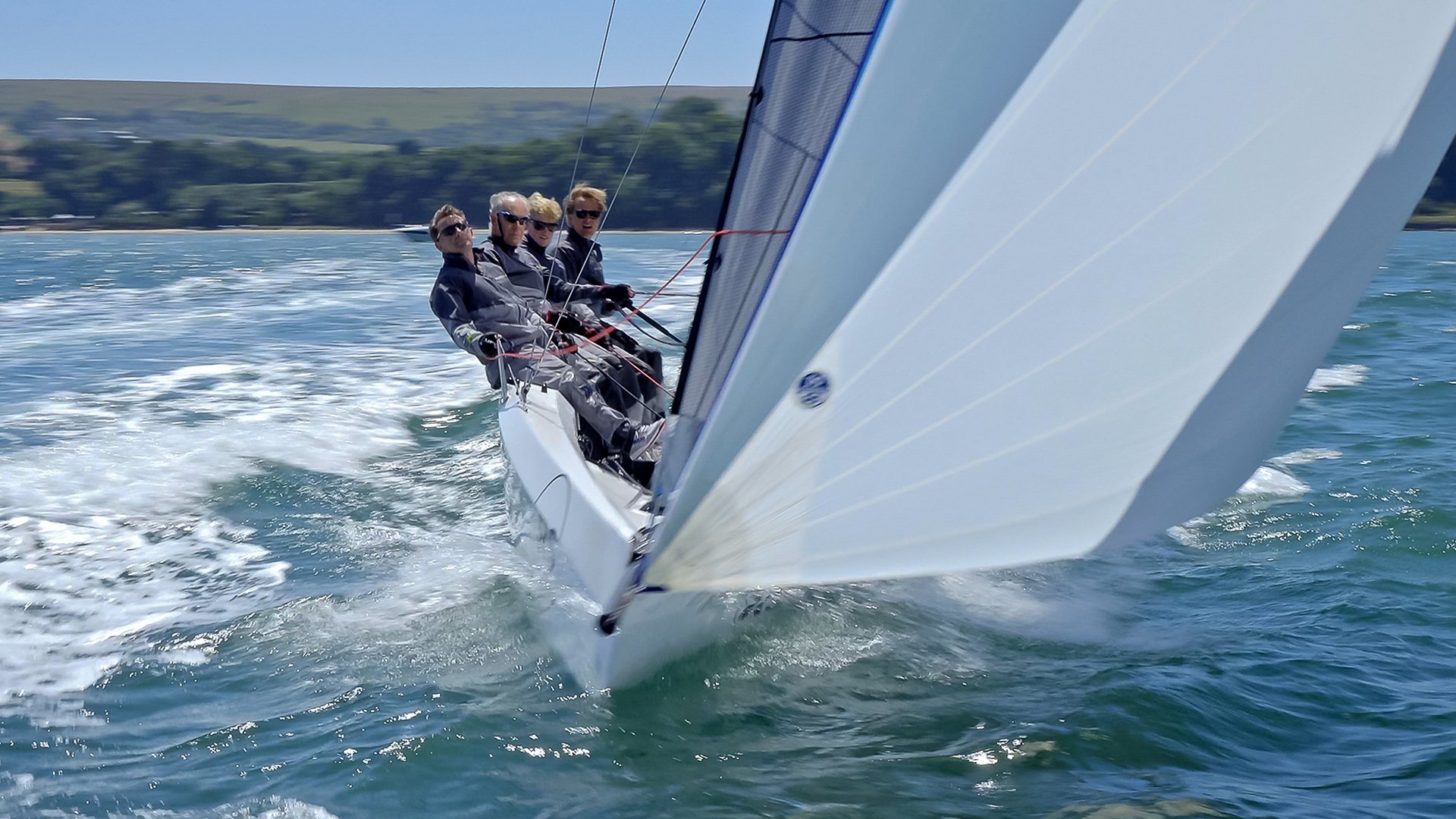What’s the project?
In Norway, the Salvation Army stand to serve the marginalised by providing food and shelter, but activities are just as important to keep the mind engaged. Jan Steven Johannessen, an Olympian and successful sailing coach since 1984, approached the Salvation Army with a training program to help reformation. ‘Frisk Seilas’ is designed to teach sailing to those who are affected by drugs and alcohol. With 9 out of 10 people who go back to drugs after being clean, sailing is the best sport to help consistency as it requires commitment and passion! For those involved, this is a lifechanging opportunity.
How it works?
They typically have 4 people in the rib, and 4 people in the boat and rotate throughout the day pausing for lunch. An opportunity where they can talk about life, feel the benefits of sailing and take a moment to appreciate the surroundings – Jan Steven’s highlight of the day. Having a few in the boat enables them to work together, learn from each other and laugh when mistakes are made. He likes to teach from a racing perspective, constantly improving and getting faster but also in line with the Norwegian Sailing Federation ‘How to Sail in 6 Steps’ and coloured stickers.
- White (beginner)
- Yellow
- Green
- Red
- Blue
- Black (able to sail solo)
Within 1 year of the project all members of the project got their black label and have since competed in Norwegian Championships. They’ve certainly gone from zero to hero! The best part of this project is that the sailors learn more every day and have become passionate about sailing as a sport; it’s so unique and creates a sailing family around them. Not only does this mean they must turn up otherwise they can fall behind… but if there’s not a full crew, then they don’t go sailing and can let people down! It’s not like football where you can miss a session unnoticed, people rely on you to commit which is what makes this project so successful.
They also do expeditions where they’ll sail to an island, camp in tents and get to know each other better and build friendships for life. Jan Steven thinks it’s important that those involved are not moralists, they are there to teach and improve sailing skills for those who need something to do. What they do in their own time doesn’t affect the project, so long as they turn up clean for the session. When they’re out on the water, they forget about their worries and concerns. They take that time to be mindful, be in the moment and push themselves out of their comfort zone.
Why the RS21?
Initially they had bought a safe, slow boat to start with which worked… but with the sailors soon outperformed it and being so used to second-hand stuff, Jan Steven wanted to give them something special, new and exciting! The RS21 was perfect for progression and going fast, after all, the faster the boat the bigger the smiles. Since Jan Steven prefers to throw them in the deep end and get them to make as many mistakes as possible, the RS21 is ideal because of its sensitivity, simplicity and high performance. Not to mention, be able to hike out and getting that adrenaline rush with your friends by your side makes for memorable sailing experiences! For this, it’s the perfect boat.
What are the project successes?
15 out of the initial 24 sailors are still in the program after 2 years. With such positive feedback the team are adding another RS21 to add to their fleet! Even though Jan Steven thought he was done with sailing after his coaching career, he says he’s been reborn and is experiencing lease of new life. The difference between coaching elite competitors and the Salvation Army sailors is that they’re grateful for the opportunity, they have experienced life difficulties and there is a bigger sense of achievement in teaching those who have come from nothing.
This opportunity is lifechanging, they can obtain licenses and qualifications to be used in employment, one of the sailors has recently passed his skipper license and is now qualified driving ferries! Since most are school dropouts, having the chance to train is a stepping-stone to improving their welfare. “The mastering they get from sailing gives me more satisfaction than winning Olympic medals” – Jan Steven.
The impact of COVID?
Of course, we have all been affected by the pandemic, however, some more than others. When social distancing came into place it presented wider issues than suspended training. For some of the sailors, not being able to train was more detrimental to their health than the virus itself. But in true sailor spirit, they are doing what they can to make things work and for now are playing virtual sailing games together, watching the Vendee Globe Challenge, Sail GP and learning more about the sport!
What’s next?
The project is successful for many reasons, it’s serves a wider purpose than just teaching people to sail – it creates friendships, memories and develops people in a broader sense. Jan Steven’s vision is for other countries to do the same so eventually they can compete with each other internationally. We hope to see this in the future and are so pleased that the RS21 is the perfect boat for social, exciting and high-performance sailing!














